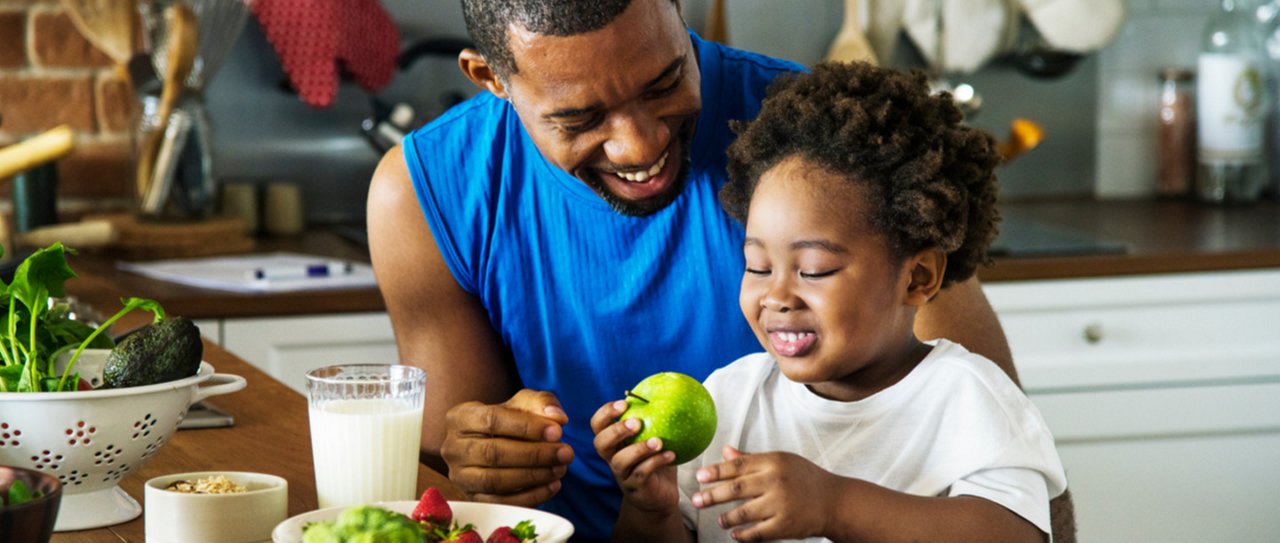Why you should quit dieting – and how to ditch it for good

Today I’m a weight loss success story turned certified health coach and fitness professional. But for decades, I struggled with yo-yo dieting. I was either on a diet or off one. I’d be frustrated with my weight, then I’d get inspired by a magazine cover’s latest outrageous weight loss claim and I would pledge to follow that diet.
Then when I couldn’t keep up with it, I felt like a failure. Over and over again. That was bad enough, but by the time I hit my early 40s the effects of a poor diet and lack of exercise were starting to cause problems with my health as well. I was classified as obese. I just didn’t feel good and was sore and tired a lot of the time, despite no medical issues being found. This entire situation made me very unhappy.
I learned that obesity and an unhealthy lifestyle can lead to type 2 diabetes, heart disease, high blood pressure, arthritis or a host of other problems, but I felt helpless since I couldn’t stick with a diet.
Sound familiar? If you’re like me, you have probably realized that diets don’t work – no matter what the commercials and magazines say.
One of the reasons diets don’t work is because by its very nature you’re either on the diet, or not on the diet. That’s too restrictive and not sustainable for most people. And in many cases crash diets and fad diets aren’t even healthy.
It’s not your fault. We’ve been sold a lie. There are no quick fixes that truly last.
Think lifestyle, not a diet
In the past, I thought of diet and exercise as a time-limited program, as in, “For the next six weeks I’m going to exercise an hour a day, eat 1,200 calories, and lose 20 pounds!”
But making healthy eating and exercise truly a lifestyle is different than that. There is no end to a healthy lifestyle. It’s an ongoing process about finding what you like, what works for you, and what you will realistically incorporate into your busy life at this moment. Therefore, pick activities and foods you enjoy.
And don’t worry, you don’t have to be perfect to succeed.
How to make healthier choices without dieting
In essence, a healthy lifestyle is about consistently making choices that benefit your overall wellness – body, mind and spirit. The little choices you make throughout the day really add up. Here are some ways to do that.
Start with small changes
Be realistic in your goals and approach. Your plan should be doable and sustainable, so that you can keep it up. Start with one small change at a time. You can always grow it from there, later on.
Have smaller portions rather than depriving yourself
Do you have trouble giving up the foods or drinks you love? With portion control as a technique, you don’t have to. You just have to get used to having a smaller amount.
One of the great things about portion control is that you’ll eat fewer calories that you otherwise would, while still enjoying the things you like. It takes time to become accustomed to smaller portions, but this powerful strategy was, and continues to be, one of the main factors in my success this time around. For the first time ever, I never felt deprived – because I wasn’t.
Manage stress
Your stress levels can affect what you eat and drink. Stress can lead to cravings for foods that are high in sugar, fat or salt; and for alcohol. Exercise is a powerful stress reducer. Also, don’t be afraid to seek counseling or talk with your medical provider if stress is affecting your life.
Get enough sleep
While this may be easier said than done depending on your situation, sleep is important for your overall health. It also helps quell the urge to overeat.
Studies by the Cleveland clinic suggest that sleep deprivation is associated with increased hunger and cravings for sweets. Lack of sleep causes hormone shifts. Ghrelin, the hunger-control hormone, increases, causing you to eat more; leptin, the appetite-suppressing hormone, decreases; and cortisol, the stress hormone, may increase, stimulating your appetite.
Read labels and focus on nutrition
Is the food nutritious? Does it contain natural or artificial ingredients? Generally speaking, the fewer ingredients on the label the better. Try to choose more natural, whole foods instead of processed foods, which tend to be high in sodium and low in nutrients. Eating clean and focusing on nutrition has made a tremendous difference in how I feel physically.
Cut back on sugar
Sugar causes inflammation, anxiety, weight gain, and a host of other problems in our bodies. Yet it is also highly addictive. For tips on how to have less of the sweet stuff, see my post on “How to quit sugar without going crazy.”
Make healthier substitutions
Think: Baked or grilled instead of fried. Single burger instead of double burger with cheese and bacon. Sugar-free drinks instead of regular. You could consume far fewer calories, fat and sodium just by making small changes like this!
Batch cook meals ahead
Cooking at home is almost always a healthier option than eating out, because you have control over the ingredients. I like to cook ahead a few meals by baking extra chicken, making meals in the slow cooker, or making a big pot of soup. It’s so convenient when you know what’s for dinner and don’t have to cook each day, and it helps cut back on fast food.
Find an exercise or physical activity you enjoy
Exercise benefits you physically and mentally. I’m so glad I started exercising. It’s helped me feel like a completely different person. I started with 15 minutes a day of walking, because I liked it and it was doable for me. Plus, walking is one of the simplest exercises there is!
Find something that you like to do, and do it.
Keep a wellness journal
Track your physical activity, what you eat and drink and when, and how you are feeling, so that you can become more aware of your habits. This helps curb mindless eating, and allows you see where changes could be made.
To start, I recommend not focusing on calories. Rather, log to get a sense of your current daily habits; your feelings, triggers and cravings; and to see where you are at nutritionally. Celebrate each time that you get some exercise or make a healthier food or drink choice!
Don’t rely on a scale to measure your success
Focus instead on forming a new healthier habit, one small change at a time; and how you are feeling. Did you go for a walk instead of watching TV? Tried out a new healthy meal recipe? Took your lunch to work instead of grabbing fast food? Slept better after doing some yoga? Things like this are major steps toward a healthier you. This is success! Feel good about every accomplishment, no matter how small.
Start by making one small change that you know you can do
It can feel overwhelming trying to change long-held habits all at once. While I’ve listed a number of ideas here, know that it’s perfectly fine to just choose one thing; one small habit or area to focus on when you’re starting out. That’s what I did. Taking one baby step is better than none!
What is one small thing that you know you could do today?
What about calories?
Of course, calories do count. If you are taking in more calories than your body can use, your body will store the excess as body fat.
But if your goal is to move away from dieting and toward healthier lifestyle choices that you can stick with, I recommend starting first with the strategies I’ve listed above rather than a strict calorie restriction.
When you are practicing healthy habits consistently, weight loss tends to follow naturally
When you are practicing healthy habits consistently, weight loss tends to follow naturally.
Take it one step at a time – and keep going
Exercise and healthier eating, and the weight loss that followed, made a dramatic change in how I feel, and that improved all areas of my life. The time and effort to change to healthy habits was 100% worth it.
If I can pass along one secret to success, it is this: Be patient, and don’t give up this time.
Instead of looking for another “quick fix” diet that is only going to lead to disappointment, commit to making one healthy change that you can keep up with. Then, you can add more changes when you’re ready.
If you need help with transitioning to healthier eating and would like a customized plan, consider meeting with a registered dietitian. Access nutrition and other counseling services by calling the number on the back of your member ID card or use our Find Care tool to locate a provider.
Browse related articles
Blue Cross and Blue Shield of North Carolina does not discriminate on the basis of race, color, national origin, sex, age or disability in its health programs and activities. Learn more about our non-discrimination policy and no-cost services available to you.
Information in other languages: Español 中文 Tiếng Việt 한국어 Français العَرَبِيَّة Hmoob ру́сский Tagalog ગુજરાતી ភាសាខ្មែរ Deutsch हिन्दी ລາວ 日本語
© 2024 Blue Cross and Blue Shield of North Carolina. ®, SM Marks of the Blue Cross and Blue Shield Association, an association of independent Blue Cross and Blue Shield plans. All other marks and names are property of their respective owners. Blue Cross and Blue Shield of North Carolina is an independent licensee of the Blue Cross and Blue Shield Association.





